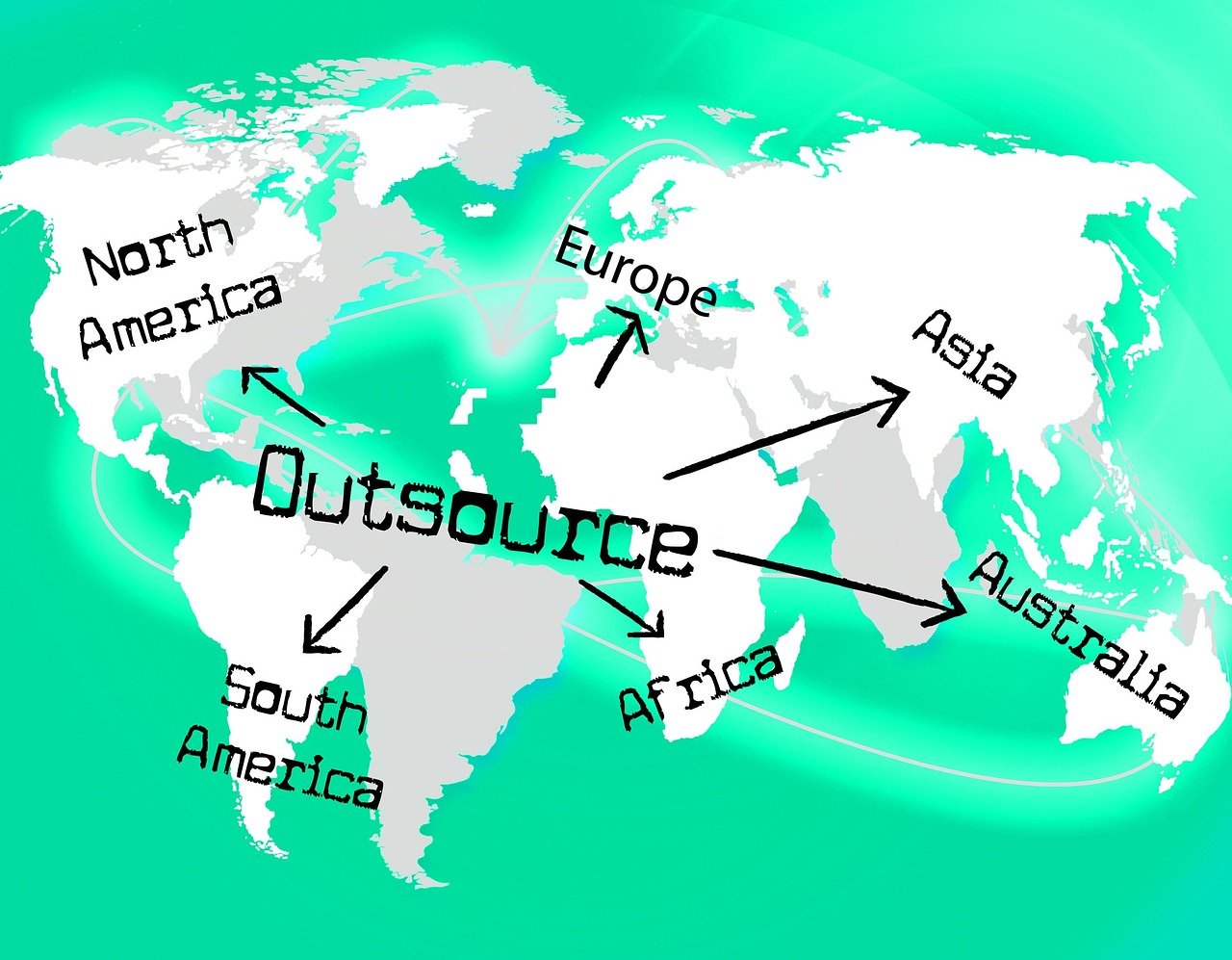Learn why smart CEOs view outsourced IT as their secret competitive weapon in this post.
Rachel’s manufacturing company was bleeding money. Not from poor sales or supply chain issues, but from something she never saw coming—her internal IT department. Between salaries, benefits, training, and constant hardware upgrades, her three-person IT team was costing nearly $400,000 annually. And they were still struggling to keep up.
Six months after switching to outsourced IT support, Rachel’s company had cut IT costs by 35% while dramatically improving system reliability. But here’s the kicker—that wasn’t even the biggest benefit.
“The real game-changer was getting access to expertise I could never afford to hire full-time,” Rachel told me during our recent conversation. She’s discovered what many forward-thinking CEOs already know: outsourced IT isn’t just about saving money anymore. It’s about gaining unfair advantages over competitors who are still doing things the old way.
Table of Contents
The Expertise Multiplier Effect
Let’s talk about something most business owners don’t consider when evaluating IT options. When you hire an internal IT person, you’re getting one person’s skill set. Maybe they’re great with network security but struggle with cloud migrations. Or they’re excellent troubleshooters but have no experience with business intelligence systems.
When you partner with a quality outsourced IT support provider, you’re essentially hiring an entire team of specialists. Need someone who’s an expert in healthcare compliance? They’ve got that. Require deep knowledge of manufacturing automation systems? Covered. Looking for someone who understands the latest cybersecurity threats? That’s their bread and butter.
READ ALSO: Brand Tracking: The Key to Sustaining Strong Brand Health and Reputation
The Real-World Impact
Consider Tom, who runs a mid-sized accounting firm. His internal IT guy was solid—handled day-to-day maintenance, kept the servers running, managed user accounts. But when Tom wanted to implement advanced data analytics to offer better insights to clients, his IT person was out of his depth.
“I had two choices,” Tom explained. “Spend months training my existing guy, hire another expensive specialist, or leverage my outsourced IT partner’s analytics expert. The choice was pretty obvious.”
Within three months, Tom’s firm was offering data visualization services that landed them two major new clients. The revenue from those clients alone paid for their entire IT budget for the year.
The Speed-to-Market Advantage
Here’s where things get really interesting. Companies with outsourced IT support consistently outpace their competitors when it comes to implementing new technologies. Why? Because they’re not starting from scratch every time they want to try something new.
Sarah’s logistics company wanted to implement GPS tracking across their fleet. Her previous internal IT approach would have required months of research, vendor evaluations, and trial-and-error implementation. With her outsourced partner, the system was up and running in three weeks.
“They’d already implemented similar systems for other logistics companies,” Sarah noted. “They knew the pitfalls, the best vendors, and exactly how to integrate everything with our existing systems.”
The 24/7 Reality Check
Let’s be honest about something—business doesn’t stop at 5 PM on Friday. But your internal IT person probably does. When systems crash over the weekend or during holidays, you’re either paying massive overtime fees or crossing your fingers that nothing critical breaks until Monday.
Quality outsourced IT providers offer round-the-clock monitoring and support. Not because they’re workaholics, but because they have teams across different time zones and enough staff to provide true 24/7 coverage without burning anyone out.
The Hidden Productivity Gains
Michael runs a professional services firm that processes client work around the clock. Before switching to outsourced IT support, weekend system issues would sometimes paralyze operations for days.
“Last month, our email server started acting up at 2 AM on Saturday,” Michael shared. “By the time I woke up Sunday morning, it was already fixed. Our team didn’t miss a beat, and our clients never knew there was an issue.”
That’s not just good service—that’s a competitive advantage. While Michael’s competitors might be scrambling to fix weekend disasters, his team stays productive.
The Innovation Acceleration Factor
This is the part that really separates smart CEOs from the pack. They’re not using outsourced IT just to maintain their current systems—they’re using it to leapfrog competitors with cutting-edge technology implementations.
Think about it: an internal IT person has to focus most of their time on keeping existing systems running. There’s little bandwidth left for researching emerging technologies, testing new solutions, or developing innovative approaches to business challenges.
Outsourced IT teams, on the other hand, are constantly working with new technologies across multiple clients. They see what’s working, what’s not, and what’s coming next. They become your early warning system for both opportunities and threats.
The Scalability Secret Weapon
Growing companies face a unique challenge—their IT needs can change dramatically in short periods. Hiring and training internal staff to match these fluctuations is expensive and slow. Laying people off during slower periods creates morale issues and knowledge gaps.
Outsourced IT support providers are built for scalability. Need extra help during a major system migration? They can allocate additional resources immediately. Expanding to new locations? They’ve done multi-site rollouts dozens of times. Acquiring another company? They have experience with system integrations and data migrations.
The M&A Advantage
Jennifer’s marketing agency grew through acquisitions—three companies in two years. Each acquisition brought different systems, different processes, and different technical challenges.
“Our outsourced IT partner made those integrations seamless,” Jennifer explained. “They’d handled similar situations before and knew exactly how to merge different systems without disrupting operations. If I’d relied on internal IT, each acquisition would have taken months longer to integrate.”
The Risk Management Reality
Here’s something that keeps CEOs up at night: cybersecurity. The threat landscape changes daily, and the cost of a single breach can devastate a business. Internal IT staff, no matter how capable, can’t possibly stay current on every emerging threat while also handling their daily responsibilities.
Reputable outsourced IT providers invest heavily in security expertise, monitoring tools, and threat intelligence. It’s their core business, not a side responsibility. They’re tracking the latest threats, implementing the newest defenses, and updating security protocols across hundreds of clients.
The Strategic Partnership Difference
The smartest CEOs I know don’t view their outsourced IT provider as a vendor—they view them as a strategic partner. These providers become deeply embedded in business planning, offering insights on how technology can support growth objectives and competitive positioning.
David, who runs a successful construction company, puts it this way: “My outsourced IT partner sits in on our quarterly planning meetings. They help us understand how technology trends might affect our industry and what we should be preparing for. That’s not something I ever got from internal IT.”
Making the Mental Shift
The biggest barrier to leveraging outsourced IT as a competitive weapon isn’t technical—it’s mental. Too many business owners still think of IT as a cost center rather than a strategic asset. They’re focused on minimizing expenses instead of maximizing value.
The companies that are winning big with outsourced IT support have made a fundamental shift in thinking. They’re asking different questions:
- How can outsourced IT help us move faster than competitors?
- What technologies should we be exploring that our competitors aren’t?
- How can better IT capabilities help us serve customers in ways others can’t?
- What competitive advantages can we gain through superior technology implementation?
The Bottom Line
Outsourced IT isn’t about giving up control—it’s about gaining capabilities. It’s not about cutting corners—it’s about accessing resources and expertise that would be impossible to maintain internally.
The CEOs who understand this aren’t just saving money on their IT budgets. They’re using outsourced IT to outmaneuver competitors, serve customers better, and build more resilient, scalable businesses.
The question isn’t whether you can afford to outsource your IT. It’s whether you can afford not to—especially when your competitors are already making the switch.
INTERESTING POSTS
- Breachers Gonna Breach: Protect Your Organization From Internal Threats
- How To View Your Saved Passwords on Any Device [Mac, Windows, Android & iOS]
- How To Cut Down Your Company’s Costs With Outsourced IT Support
- What Are the Benefits of Outsourcing to an IT Support Company?
- A Look at Visual Tech: A Guide on the Latest Innovations
About the Author:
Meet Angela Daniel, an esteemed cybersecurity expert and the Associate Editor at SecureBlitz. With a profound understanding of the digital security landscape, Angela is dedicated to sharing her wealth of knowledge with readers. Her insightful articles delve into the intricacies of cybersecurity, offering a beacon of understanding in the ever-evolving realm of online safety.
Angela's expertise is grounded in a passion for staying at the forefront of emerging threats and protective measures. Her commitment to empowering individuals and organizations with the tools and insights to safeguard their digital presence is unwavering.








